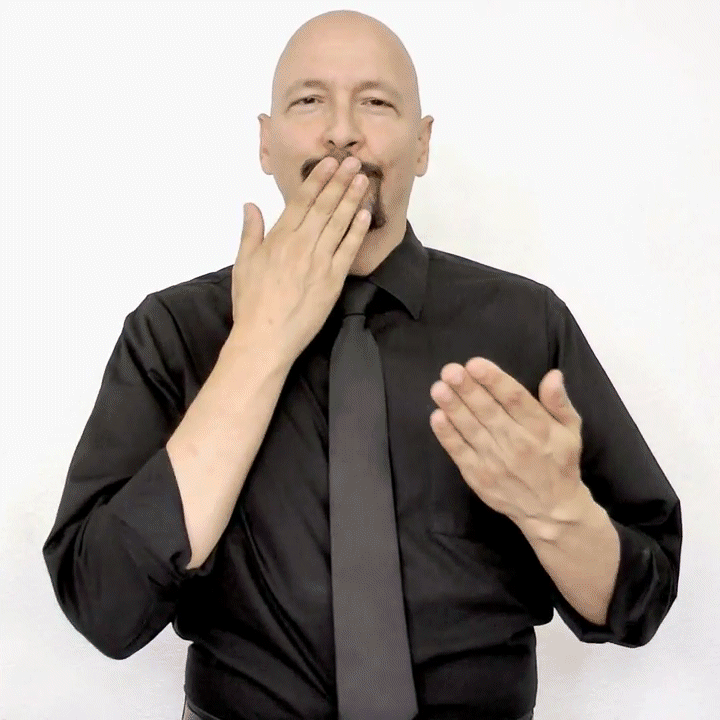A project in Milwaukee called Ex Fabula coaches deaf story-tellers how best to relate their stories to both deaf and hearing audiences. The organizers figured out that a signing story-teller could relate to a deaf audience and a speaking story-teller could relate to a hearing audience. But,
- what happens to a deaf audience member with a speaking story-teller?
- what happens to a hearing audience member with a signing story-teller?
What the organizers came to realize is that the deaf community is its own culture, a culture with its own language. They realized they weren’t just translating words across hearing or deaf audiences, but they were expressing a culture with the message. Translators from signing to the spoken word kept telling the deaf story-teller to stop moving around so much because they couldn’t see the signs to translate. Translators from speaking to signing were told to not move very much to keep the attention on the speaker. The natural movement that comes with signing was squelched in both cases. The movement of signing, Ex Fabula discovered, was a part of the deaf culture that was getting lost in translation.
What can trial attorneys learn from this fantastic story-telling project??
- In opening, you are there to tell your story.
- The language of your story comes from a culture of the law—the culture you learned in law school.
- Your audience, the jury, is mainly “legally deaf.” They don’t speak your language. They don’t know the concepts that live in and emerge from your culture.
- They may understand your words, but they don’t know what those words mean in this context, just like I know that a right hand over the mouth that moves down to rest on a flat left hand is the American Sign Language motion for the word “good.” However, in the context of all the other signs before and after signing “good,” I don’t know what the “good” refers to at all.
- Example: you tell the jury this case is a design defect case-
| What you mean from your culture and language is . . . | What the “legally deaf” culture hears . . . |
| Foreseeable | “You think designers can predict the future?” |
| Unreasonably dangerous | “The (car, backhoe, forklift) worked fine – there was nothing ‘defective’ – nothing broke.” |
| No comparative negligence | “You can’t design out ‘stupid.’” |
So, maybe create your own mindset wherein you picture your opening in this new way:
- My story reflects a culture that these jurors are not in.
- My story uses a language they won’t understand.
- How can I tweak it so that they get my full meaning?
Hmmm?
Ooooh!
Share This Story, Choose Your Platform!
Click below to add your email address to our mailing list and receive the latest Persuasion Tips right in your inbox!

